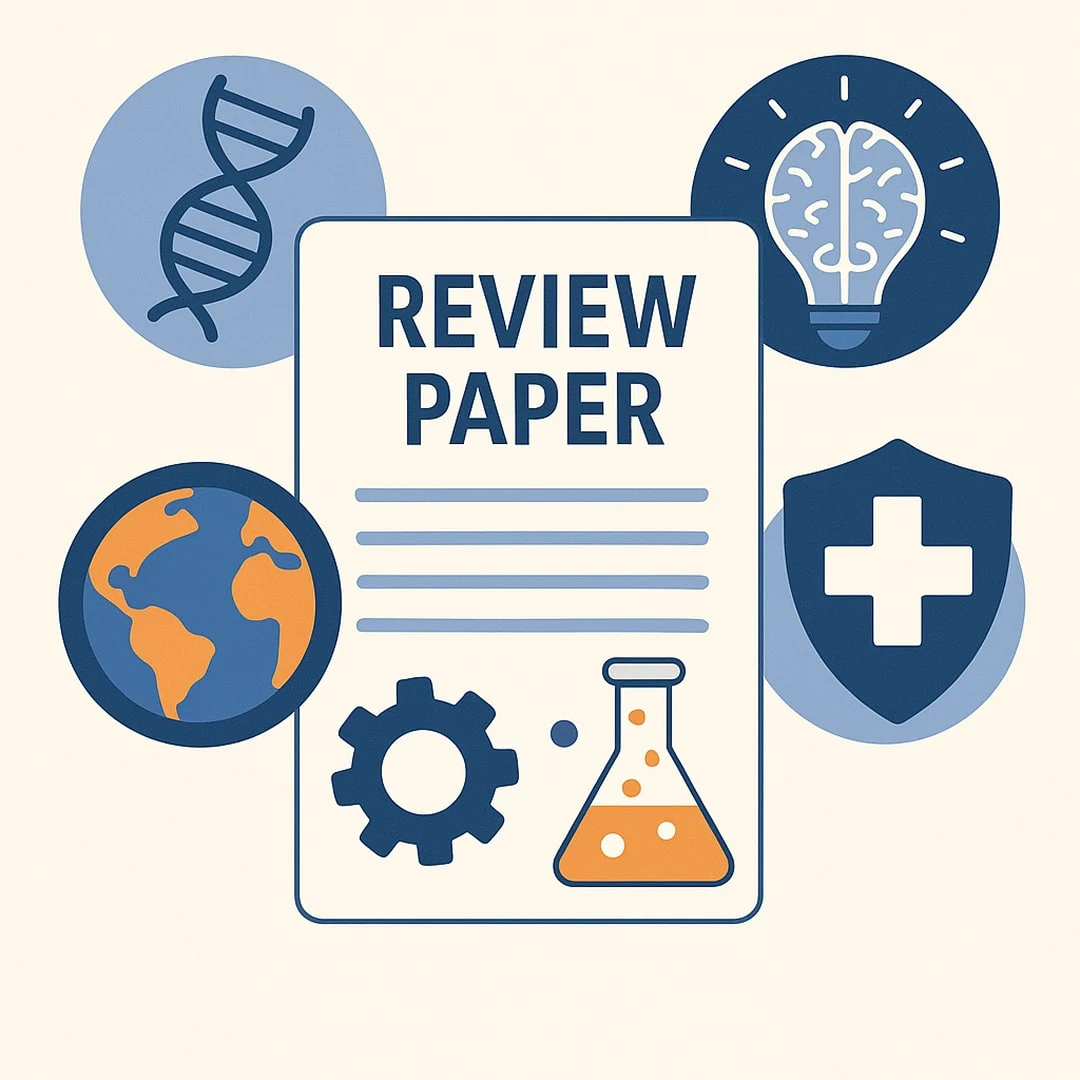
Review papers are pillars that form the bedrock of academic research. They provide an informative summary and critique of past research in a particular field, enabling researchers to know what has been achieved in the past and select fields where there is a research gap. Whether a veteran scholar or an up-and-coming researcher, having the skills to write an effective review paper will place your work on the radar of the best journals. But many students are bogged down in format, organization, and journal conformity. That's when professional assistance makes all the difference.
At PhD Guidence, we give you complete support for making your review paper ready to international publication standards. In case you are looking for top-quality journals, Get Full Support from our experts today.
Prior to knowing how to write a review paper, one must know its chief purpose. A review paper does not report novel experimental data; rather, it integrates previously published data, compares and contrasts it critically, and suggests directions for the future. It assists:
Consolidate results from different studies.
Hilite trends, methods, and controversies within an area.
Suggest unpursued avenues for research in the future.
Direct new researchers into a field.
Your topic must be narrow enough to enable adequate exploration but broad enough to encompass significant literature. Avoid selecting too broad a topic since it could cause superficial examination. Select topics with inconsistent results or new arguments—these are more desirable to journal editors.
Use databases like Scopus, PubMed, Web of Science, and Google Scholar. Your goal is to come up with peer-reviewed, high-impact articles that are relevant to your topic. A good literature review article has at least 30–50 valid sources.
Instead of explaining one study after another, group the literature under:
In this manner, the material is more interesting and easier to read.
A good review paper includes:
Title: Descriptive, concise, and keyword-based.
Abstract: 200–250 words abstracting scope, major findings, and salience.
Introduction: State the scope, significance, and aim.
Main Body: Thematic synthesis of studies with critical insights.
Conclusion: Major points in nutshell and gap identification.
References: Uniform citation style (APA, MLA, IEEE, etc.).
All reviewers commit the error of over-summary. Rather, pass judgment on:
Strengths and weaknesses in design and conclusions.
Opposing arguments and reasons supporting them.
Topic areas unexplored or under-researched.
The purpose is to critique, not report.
Each journal follows its own format, length, citing, and submission requirements. Go to the journal website, download the author's guidelines, and follow them. For professional formats and proofreading, seek professional help to prevent rejection.
Even after acquiring the skills to write a review paper, researchers face the following challenges:
Difficulty in shortening the subject matter.
Choosing appropriate sources from vast literature.
Organizing information in a logical sequence.
Formal and clear writing.
Adherence to journal-specific style.
Professional academic assistance can be of help here.
We don't simply offer generic writing assistance at PhD Guidance. This is what we do for you:
Topic Selection Assistance: Narrowing down on a good research-topic.
Database Research: Scopus, PubMed, IEEE, and other database access.
Development of Annotated Bibliography: Organized references with abstracts.
Detailed Outline: In accordance with thematic or chronological structure.
Full Review Paper Writing: Written by PhD experts in your field.
Plagiarism-Free Content: 100% original, with plagiarism reports.
Referencing and Formatting: Journal format.
Final Proofreading: By language editors with journal publication records.
Ready to start? Write a Review Paper with expert assistance and increase the publication chances in high-ranked journals.
Be Objective: Be unbiased towards specific authors or theories.
Use Visual Aids: Tables, charts, and diagrams may serve to illustrate intricate relationships.
Be Concise but Complete: Avoid being redundant while covering all points of substance.
Ensure Recent Studies: Prioritize pieces written within the past 5–10 years unless quoting source theories.

Applications of Artificial Intelligence in Healthcare: A 10-Year Review
Climate Change and Crop Yield: A New Synthesis of Research
Mental Health in the Pandemic: Global Research Trends
Gender Representation in Political Discourse: A Meta-Analytical Review
Selecting a timely and relevant topic makes your paper more valuable and the likelihood of acceptance in top-tier journals greater.
How to prepare a review paper is crucial for every researcher willing to establish a robust scholarly profile. An excellent review paper reflects your mastery of the topic, foresees forthcoming research and frames the agenda for upcoming research. The process is not necessarily smooth, though. From identifying an appropriate topic to journal specifications, professional assistance renders the process much simpler.
With PhD Guidance, you never have to face anything alone. Our panel of PhD experts provides full Support at each step from planning to publication. Why should your achievement be based on luck? Reach us today and proceed with your scholarly pursuit.
???? Get Full Support in composing your review paper with one-on-one academic support.